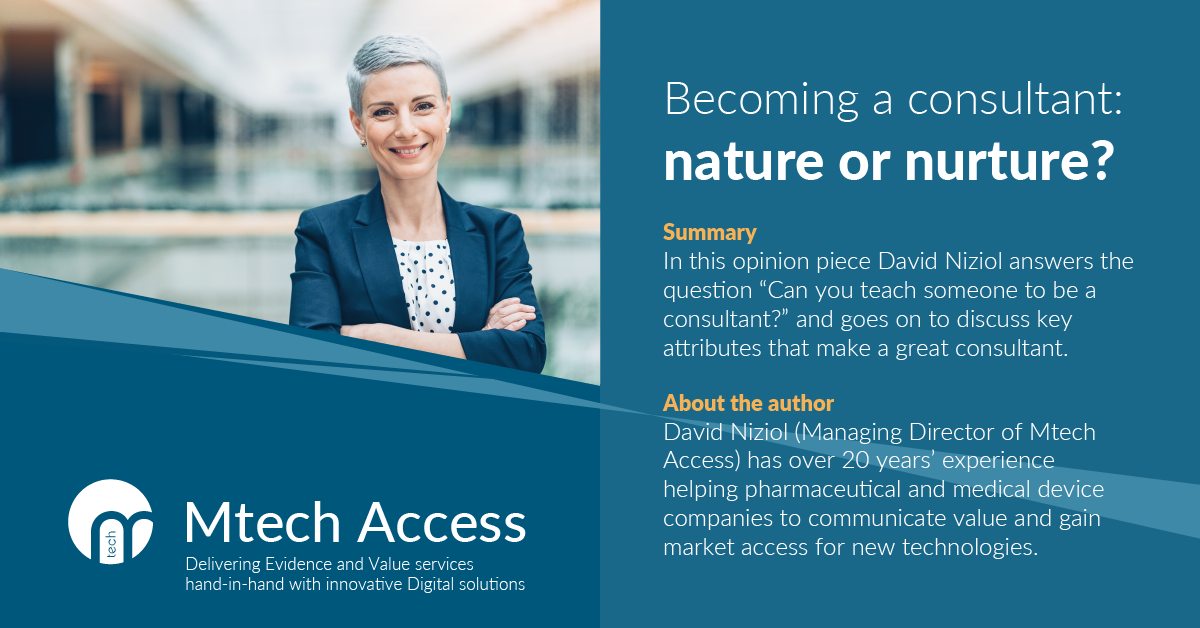
A question I have been asked in the past is “Can you teach someone to be a consultant?” And the answer? Well, of course you can – but only up to a point!
In our field of market access and HEOR, technical skills and know-how are considered paramount – and rightly so. And time, and time to teach, are what are required to upskill new people, like any high-skilled industry. So, accepting that a consultant needs to learn the basics of their trade, what comes next? And what drives success?
In my opinion, it is how a person applies their technical skills, and much more besides, that ultimately “makes” a truly great consultant. Three key factors drive the maturation of a consultant:
- Attitude – Once the basic technical skills are on board, how someone behaves and responds to challenges is really important: Open-mindedness, flexibility, creativity; the ability to take criticism and remain open to continued learning; empathy for the end-user client. You can have the most gifted technician in the world, but if they don’t have the right attitude or behaviours, then a great consultant they will not make!
- Communication – Our clients are busy people, and they rely on us to tell them what is needed and by when. This communication needs to be prompt, open and direct. If delivery is going to be delayed, or a much-wanted piece of functionality is just not possible, then a client needs to be told in an honest and clear fashion. This message should be delivered with tact and maturity, of course, and with a readiness to listen to the client’s challenges and pressures. And sometimes, this needs a bit of experience to get it right.
- Judgement – Probably the most important factor of all is knowing when to escalate, intervene or just leave well enough alone. Good judgement, however, only comes with experience – and there is no way around this. Time spent as a consultant allows you to observe how projects run, how clients behave and how colleagues react to pressure. All of this “data” is collected and synthesised – informing how you react to situations in a fast-paced consulting environment. Good judgement, informed by experience, leads to efficient and reliable project delivery. Building on this platform, a great consultant can create innovative client solutions that “wow” internal client stakeholders and engage effectively with payers and decision-makers.
So, yes – teaching someone to be a consultant is possible. But becoming a really good one requires time, experience and the right behaviours.
About the author: David Niziol
About Mtech Access: Mtech Access is no ordinary global market access and digital communication consultancy. We have brought together a team of experienced market access professionals with a track record of successful partnership – more than half of the team have 10+ years’ experience.
We deliver Evidence and Value services hand-in-hand with innovative Digital solutions. We are one team, with one vision – to improve how value is communicated so patients get access to the treatments they need.
Contact us today to hear how we can help maximise the value of your product.


